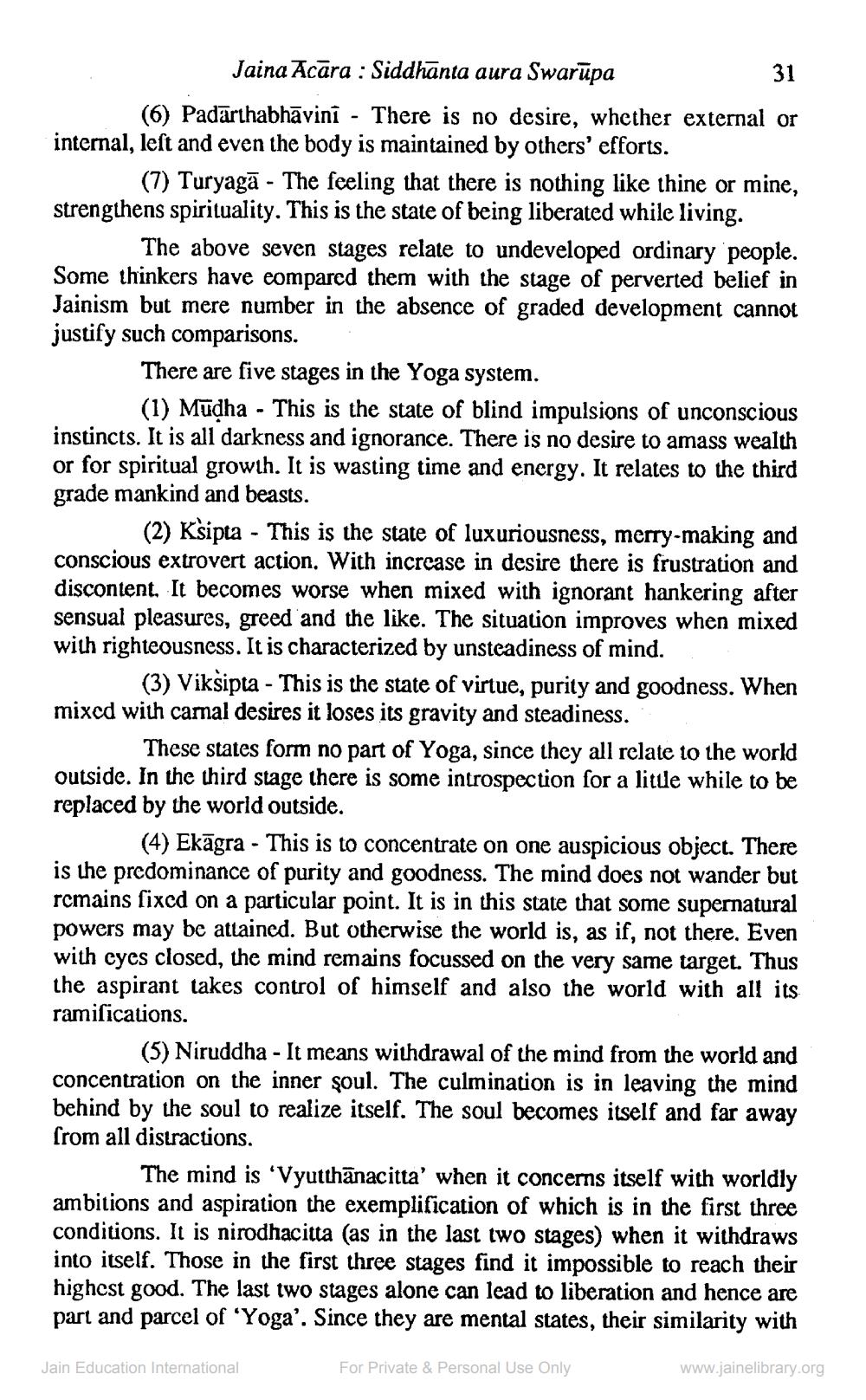________________
Jaina Acara : Siddhanta aura Swarūpa
31 (6) Padarthabhāvini - There is no desire, whether external or internal, lest and even the body is maintained by others' efforts.
(7) Turyagā - The feeling that there is nothing like thine or mine, strengthens spirituality. This is the state of being liberated while living.
The above seven stages relate to undeveloped ordinary people. Some thinkers have eompared them with the stage of perverted belief in Jainism but mere number in the absence of graded development cannot justify such comparisons.
There are five stages in the Yoga system.
(1) Mūdha - This is the state of blind impulsions of unconscious instincts. It is all darkness and ignorance. There is no desire to amass wealth or for spiritual growth. It is wasting time and energy. It relates to the third grade mankind and beasts.
(2) Ksipta - This is the state of luxuriousness, merry-making and conscious extrovert action. With increase in desire there is frustration and discontent. It becomes worse when mixed with ignorant hankering after sensual pleasures, greed and the like. The situation improves when mixed with righteousness. It is characterized by unsteadiness of mind.
(3) Vikšipta - This is the state of virtue, purity and goodness. When mixed with carnal desires it loses its gravity and steadiness.
These states form no part of Yoga, since they all relate to the world outside. In the third stage there is some introspection for a litte while to be replaced by the world outside.
(4) Ekāgra - This is to concentrate on one auspicious object. There is the predominance of purity and goodness. The mind does not wander but remains fixed on a particular point. It is in this state that some supernatural powers may be attained. But otherwise the world is, as if, not there. Even with eyes closed, the mind remains focussed on the very same target. Thus the aspirant takes control of himself and also the world with all its ramisications.
(5) Niruddha - It means withdrawal of the mind from the world and concentration on the inner soul. The culmination is in leaving the mind behind by the soul to realize itself. The soul becomes itself and far away from all distractions.
The mind is 'Vyutthānacitta' when it concerns itself with worldly ambitions and aspiration the exemplification of which is in the first three conditions. It is nirodhaсitta (as in the last two stages) when it withdraws into itself. Those in the first three stages find it impossible to reach their highest good. The last two stages alone can lead to liberation and hence are part and parcel of 'Yoga'. Since they are mental states, their similarity with
Jain Education International
For Private & Personal Use Only
www.jainelibrary.org




